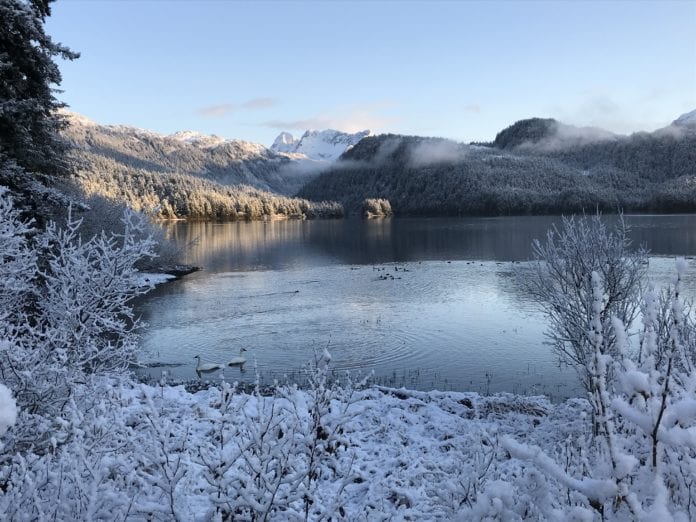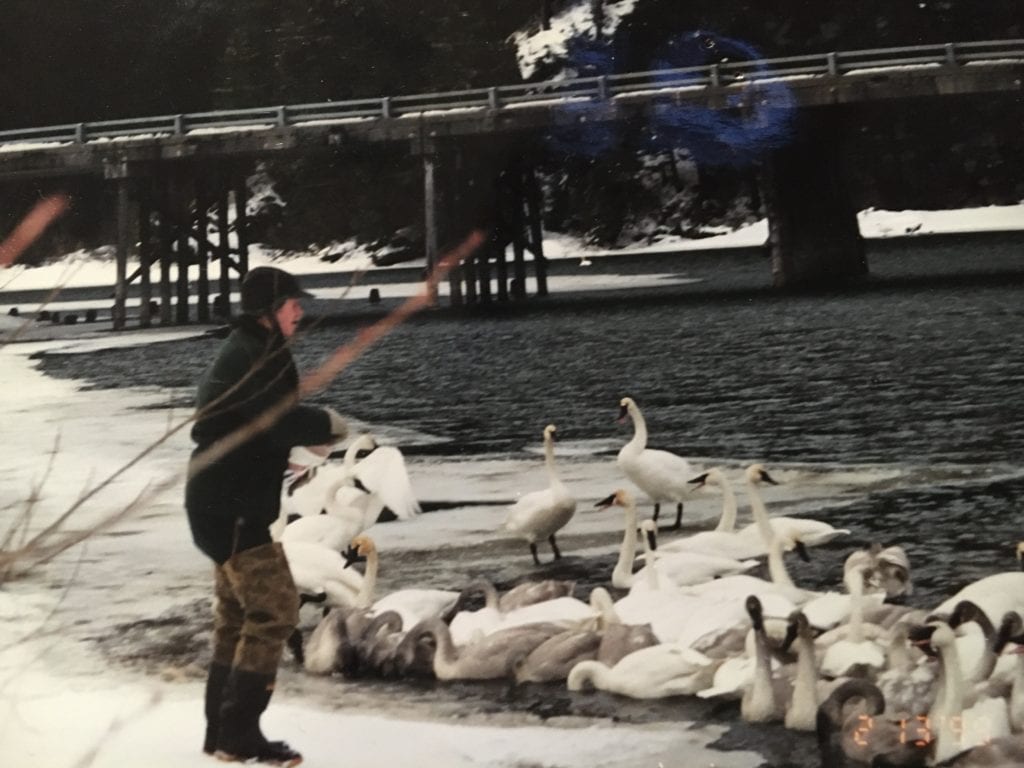
One of the pleasures of walking along Power Creek Road is hearing the melodious bugling of trumpeter swans.
Flying in graceful rows of white, wingtips almost touching, their plaintive cries echo across Eyak Lake, especially when much of it is covered with ice.
Over the past several years, it seems that more and more of the huge birds are opting to stay year-round, rather than migrate south with countless other species that make Alaska their summer breeding grounds.
Perhaps that’s because lakes, ponds and rivers appear to be freezing over less often, which makes feed available.
For many years, when Eyak Lake froze up solid, swans were forced to struggle for food in limited open waters near Eyak River Bridge.
Legendary Cordovan outdoorsman Ed King decided to help them make it through the winter by feeding them barley on the snowy riverbanks just above the bridge.

King would use a toboggan to haul the grain over from the road, and the swan came to know him so well that they would swim over and eat right out of his hand.
According to his son Mark, some of them responded to names Ed had given them.
Mark recalled that the barley came from a homesteader in Kenny Lake, who would truck it down to Valdez. He mentioned there were several contributors, including Dick Borer, that helped pay for the grain.
From there, ferry workers arranged to have the bags brought over to Cordova on vehicles headed this way. Toni Bocci, who was manager of the Cordova terminal, would make sure the barley was then passed along to King.
Feeding wildlife in this manner was actually prohibited, but authorities gave King permission to continue out of respect for his vast knowledge and contributions to Alaska game management.
When King passed away in 2004, this practice was discontinued. Yet the swans have remained, in increasing numbers.
Inadvertently, they have decided to return their human brethren a favor.
While searching for food, they gather at locations of open water.
Their bright white silhouettes and trumpeting serve as warning signs of danger for ice skaters skimming along the lake’s flat surface.
Who knows, some of them might be the very swan Ed King fed, or perhaps their descendants.
Swans, you see, can live to be 20 years or more.
And somewhere, Ed King has to be listening to their trumpeting — and smiling.














